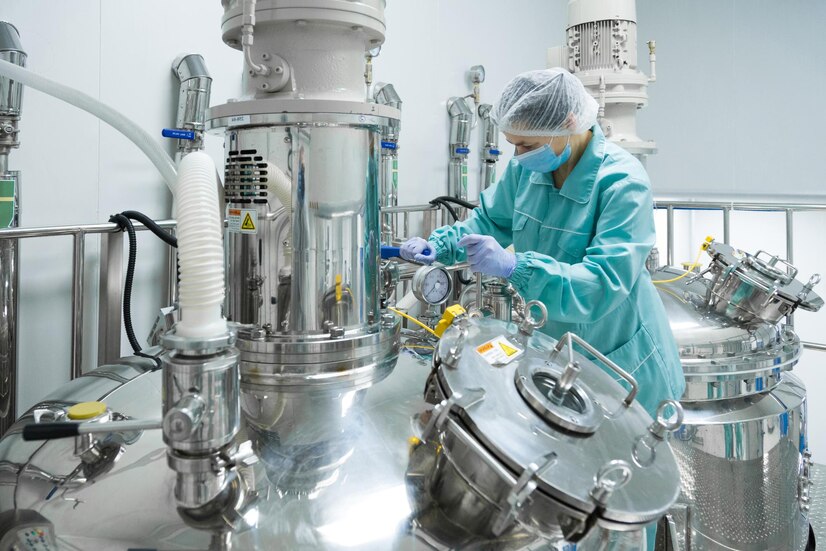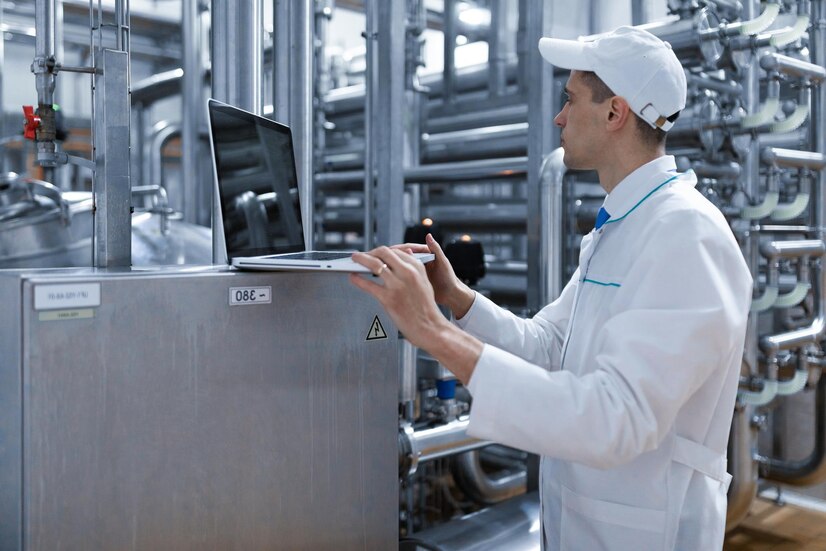Streamlined Mannitol Manufacturing: Turnkey Solutions
Welcome to our latest exploration into the world of mannitol manufacturing! Mannitol, a versatile compound widely used in pharmaceuticals, food products, and various industrial applications, holds significant importance in diverse industries. With its increasing demand, the need for efficient manufacturing processes has never been more pressing. In this blog post, we delve into the realm of streamlined mannitol production and the pivotal role of turnkey solutions in optimizing manufacturing efficiency. Join us as we uncover the intricacies of mannitol production and how turnkey solutions are revolutionizing the landscape, offering comprehensive, integrated approaches to address the challenges faced by manufacturers. From enhancing production yields to ensuring regulatory compliance, turnkey solutions are empowering manufacturers to streamline their operations, reduce costs, and ultimately, meet the growing demands of the market. Let’s embark on this journey to discover the transformative potential of turnkey solutions in mannitol manufacturing, and how they are reshaping the industry for a more sustainable and prosperous future.Mannitol’s Significance in Industries
Mannitol is a versatile compound with wide-ranging applications across numerous industries. In pharmaceuticals, it serves as both an excipient, aiding in the formulation of medications, and a bulking agent in oral medications, facilitating proper dosage administration. Within the food industry, mannitol acts as a sugar substitute, imparting sweetness without the caloric content of traditional sugars, and as a stabilizer in confectionery and bakery products, enhancing texture and shelf life. Furthermore, in cosmetics, mannitol functions as a humectant, drawing moisture to the skin, and a texture enhancer, improving the consistency of various products. Its importance stems from its multifaceted utility, offering desirable characteristics to end products such as sweetness, texture, and moisture retention, while also providing health benefits like its low-calorie content and non-cariogenic properties.Challenges in Mannitol Manufacturing
Mannitol manufacturing confronts several significant challenges, primarily stemming from the intricacy of the production process. The process often requires specialized equipment and intricate procedures, leading to high energy consumption and production costs. Moreover, maintaining consistent quality and purity levels presents a considerable challenge, particularly in meeting stringent regulatory standards across different industries. As demand for mannitol continues to rise, manufacturers face pressure to scale up production capacities while concurrently ensuring cost-effectiveness and sustainability, further complicating the manufacturing landscape.The Need for Efficiency
In the face of mounting demand and ever-evolving regulatory standards, the call for efficiency in mannitol manufacturing has reached a crescendo. Efficiency, in its multifaceted form, spans a spectrum of vital considerations. It begins with the optimization of production processes, where every step is meticulously fine-tuned to maximize output while minimizing resource consumption. Concurrently, efforts are directed towards minimizing waste generation and curbing energy consumption, ensuring that manufacturing practices align with sustainability goals. However, efficiency extends beyond the confines of production floors; it extends to the timely delivery of high-quality products, catering to the dynamic needs of the market. By embracing efficiency initiatives, manufacturers can bolster their competitive edge, adhere to stringent regulatory mandates, and exceed customer expectations for product excellence and reliability.Introduction to Turnkey Solutions
Turnkey solutions offer a holistic approach to mannitol manufacturing, covering all aspects from design and engineering to procurement, construction, and commissioning. These solutions are tailored to the specific needs of manufacturers, providing integrated systems that streamline operations and optimize resource utilization. By entrusting the entire manufacturing process to a single provider, manufacturers can benefit from enhanced coordination, reduced project timelines, and minimized risks, ultimately leading to improved efficiency and productivity.- Comprehensive Approach: Turnkey solutions cover all aspects of the manufacturing process, from initial planning and design to final implementation and operation, providing a seamless and cohesive approach to project management.
- Single Point of Contact: With turnkey solutions, manufacturers have a single point of contact throughout the project, simplifying communication, coordination, and troubleshooting, and reducing the likelihood of misunderstandings or delays.
- Customization and Flexibility: Turnkey solutions are highly customizable to meet the unique requirements and preferences of each manufacturer, offering flexibility in design, implementation, and execution to ensure optimal outcomes.
- Efficiency and Cost-Effectiveness: By streamlining processes, optimizing resources, and minimizing duplication of efforts, turnkey solutions help manufacturers achieve greater efficiency and cost-effectiveness in their operations.
Optimization Through Integration
 Turnkey solutions excel in integrating various components of the mannitol manufacturing process seamlessly. This integration spans raw material handling, reaction kinetics, purification techniques, and quality control measures.
By optimizing each step and ensuring harmonious coordination between different stages, manufacturers can achieve significant enhancements in overall efficiency and productivity. The cohesive nature of turnkey solutions fosters synergies between disparate elements of the manufacturing process, unlocking untapped potential for optimization and performance improvement.
Turnkey solutions excel in integrating various components of the mannitol manufacturing process seamlessly. This integration spans raw material handling, reaction kinetics, purification techniques, and quality control measures.
By optimizing each step and ensuring harmonious coordination between different stages, manufacturers can achieve significant enhancements in overall efficiency and productivity. The cohesive nature of turnkey solutions fosters synergies between disparate elements of the manufacturing process, unlocking untapped potential for optimization and performance improvement.
Enhancing Production Yields
Turnkey solutions represent a paradigm shift in manufacturing, harnessing cutting-edge technologies and process optimization strategies to unlock the full potential of production yields. This entails a meticulous approach to fine-tuning reaction conditions, where parameters are precisely adjusted to achieve optimal results. Additionally, sophisticated separation techniques are employed to ensure the purity and quality of the final product. Continuous manufacturing processes are seamlessly integrated, minimizing downtime and maximizing throughput to enhance overall efficiency. By embracing innovative approaches and leveraging state-of-the-art equipment, manufacturers can extract higher yields from raw materials, translating to enhanced operational efficiency and profitability. Through the strategic implementation of turnkey solutions, manufacturers can stay at the forefront of their industries, delivering superior products while maintaining a competitive edge in the market.Ensuring Regulatory Compliance
In the realm of mannitol manufacturing, adherence to regulatory standards is an indispensable prerequisite to safeguarding product safety and efficacy. Turnkey solutions stand as bulwarks against regulatory non-compliance by integrating robust quality management systems and compliance protocols into every facet of the manufacturing process. This comprehensive approach ensures that regulatory requirements are meticulously followed at each stage, from raw material sourcing to final product distribution. By preemptively addressing regulatory concerns and upholding the utmost standards of product quality and purity, manufacturers not only mitigate operational risks but also prioritize consumer well-being. Furthermore, this unwavering commitment to compliance serves to bolster brand reputation, fostering trust and loyalty among consumers. Through the steadfast implementation of turnkey solutions, manufacturers navigate the complex regulatory landscape with confidence, demonstrating their unwavering dedication to excellence and integrity.Cost Reduction Strategies
Turnkey solutions offer pragmatic approaches to cost reduction in mannitol manufacturing by optimizing resource utilization, minimizing waste generation, and reducing energy consumption. Through the implementation of efficient processes and the exploitation of economies of scale, manufacturers can achieve substantial reductions in production costs without compromising product quality or performance.- Optimize Resource Utilization: Analyze resource usage throughout the manufacturing process to identify areas of inefficiency and wastage. Implement strategies to minimize resource consumption while maximizing output, reducing overall production costs.
- Streamline Supply Chain: Evaluate and optimize the supply chain to reduce lead times, minimize inventory carrying costs, and mitigate supply chain risks. Implement just-in-time inventory management and establish strategic partnerships with reliable suppliers to negotiate favorable terms and pricing.
- Invest in Technology: Embrace technological advancements such as automation, robotics, and data analytics to streamline operations, improve productivity, and reduce labor costs. Implementing advanced manufacturing technologies enables greater precision, efficiency, and consistency in production processes, resulting in cost savings.
- Energy Efficiency Initiatives: Implement energy-saving measures such as upgrading equipment to energy-efficient models, optimizing process parameters to reduce energy consumption, and investing in renewable energy sources where feasible. By reducing energy usage, manufacturers can significantly lower operational costs while also reducing their environmental footprint.
